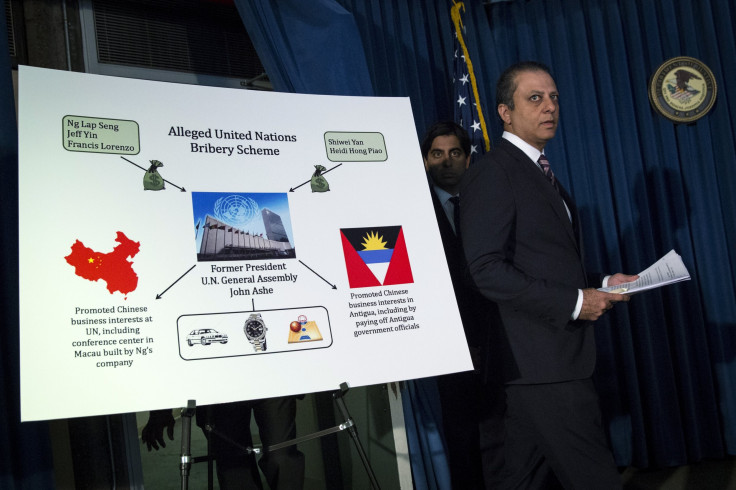Business Corruption Risk 2015: Global Survey Finds Many Firms Losing Deals To Corrupt Competitors

Bribery and kickbacks paid to executives and government officials to secure business contracts have seen almost a third of companies worldwide lose out on international deals, a new survey on corruption found. At the same time, the business outlook was improving for companies operating in countries with tight anti-corruption enforcement, according to Control Risk, a New York-based global business risk consulting firm, which released the findings Monday.
Perceived corruption risk across the globe has deterred an increasing number of business investors, the survey found. But there is still more to do: Conventional anti-corruption approaches have contributed to some companies' increased corruption risk because those measures instill “a misguided sense of complacency,” the researchers said.
“Something we’ve heard from our clients -- even companies with strong compliance programs -- is that they struggle to foster a culture of ethics and integrity within their organizations,” Greg Esslinger, senior managing director of Control Risks’ compliance, forensics and intelligence practice in the Americas, said in a statement. “Many companies in the survey viewed compliance programs as a competitive advantage in challenging jurisdictions. But to really enjoy that advantage requires more than just a good program; it requires a corporate culture that values integrity and ethical behavior.”
To be more risk-averse, companies must integrate anti-corruption-risk policies into their strategic planning, Control Risks said. They should also scrutinize business deals early on in the process, give their front-line contract negotiators more support to recognize corruption risks and take a "zero tolerance" stance when bribery or kickbacks are detected, among other recommendations.
Of the 824 companies interviewed by Control Risks, 30 percent said corrupt competitors were a major cost to international business. Forty-one percent of respondents said the perceived risk of corruption was the main reason they had killed a deal. When asked if international anti-corruption laws were improving business environments worldwide, 81 percent of respondents agreed, according to the findings.
Corruption remains a significant problem in countries such as India, Indonesia, South Africa and Brazil due to a lack of government regulation of international business deals, Control Risks said. Fear of negative consequences is the most commonly cited deterrent to corrupt behavior, respondents said. However, companies are not setting the right incentives to deter corruption, the consulting firm said.
“Too many good businesses are losing out on opportunities to corrupt competitors, or choosing not to take a risk on an investment or entering a new market in the first place for fear of encountering corrupt practices,” Richard Fenning, CEO of Control Risks, said in a statement. He added that companies need to “find a balance and do more due diligence” prior to market entry.
© Copyright IBTimes 2024. All rights reserved.





















